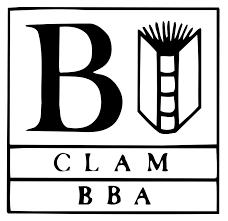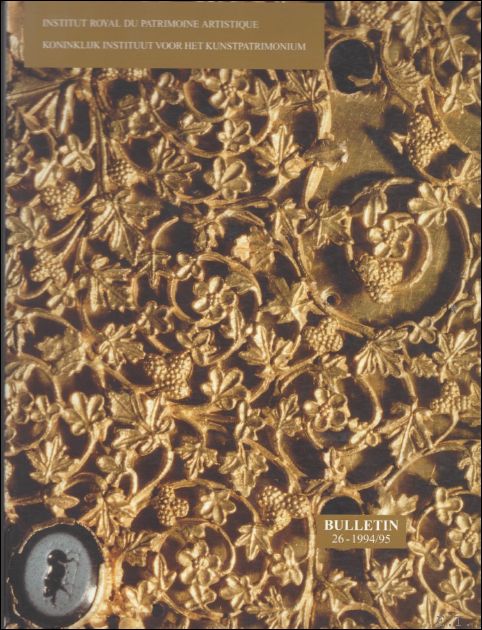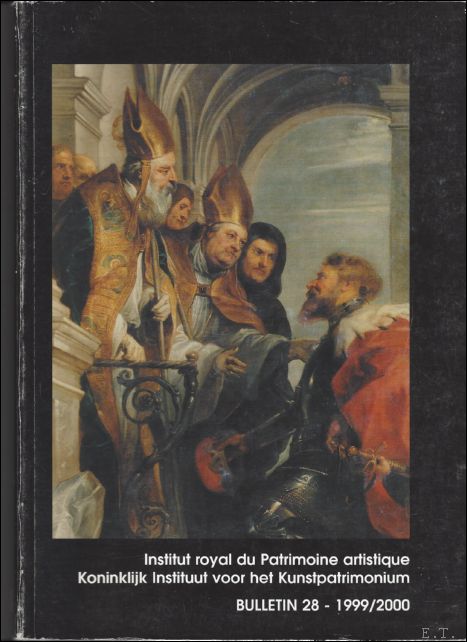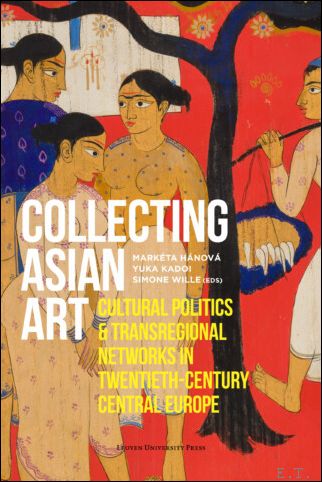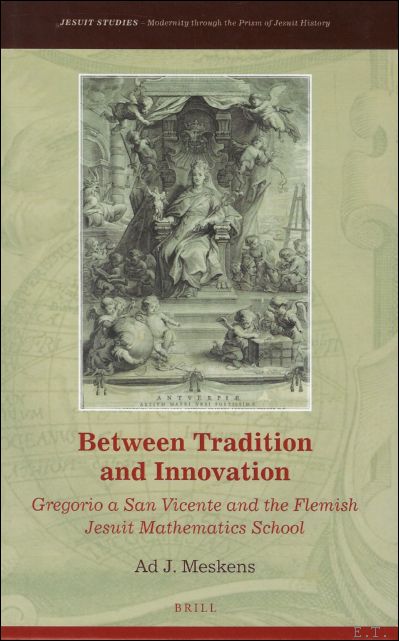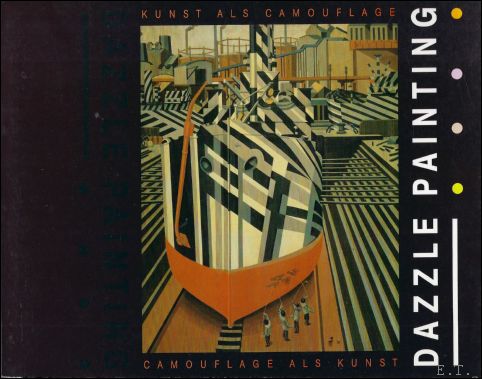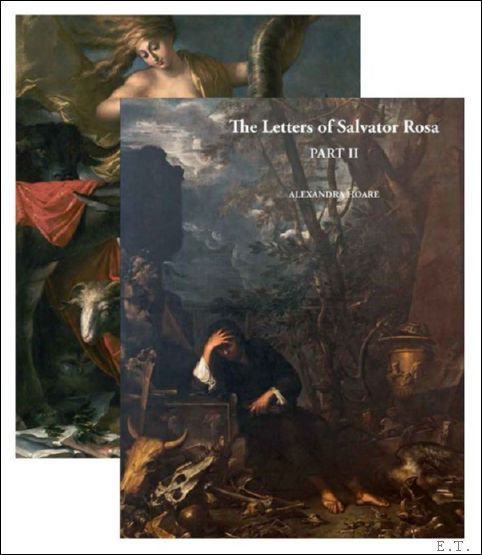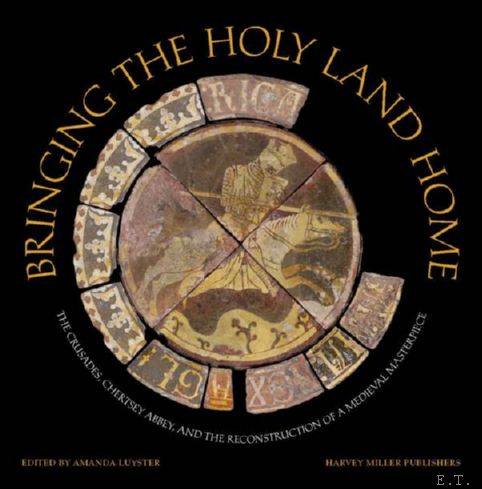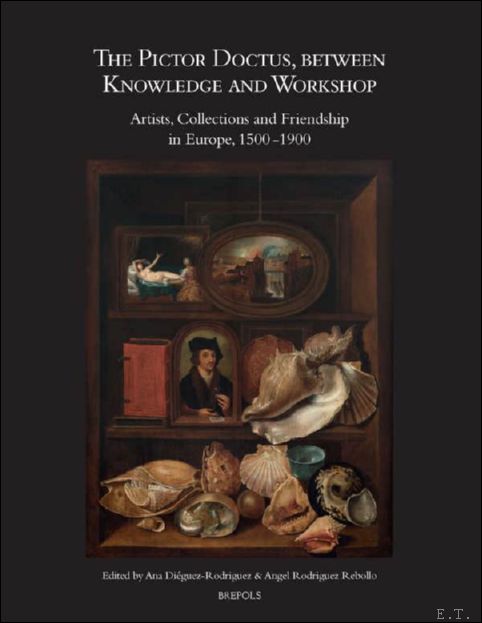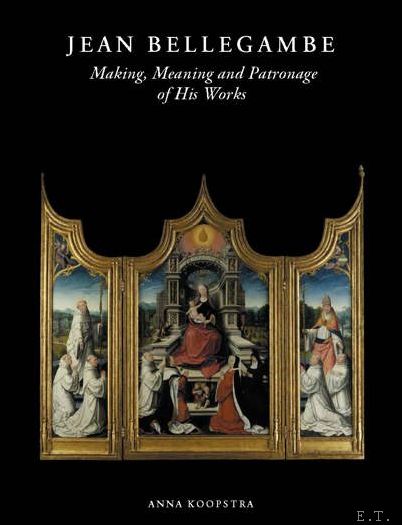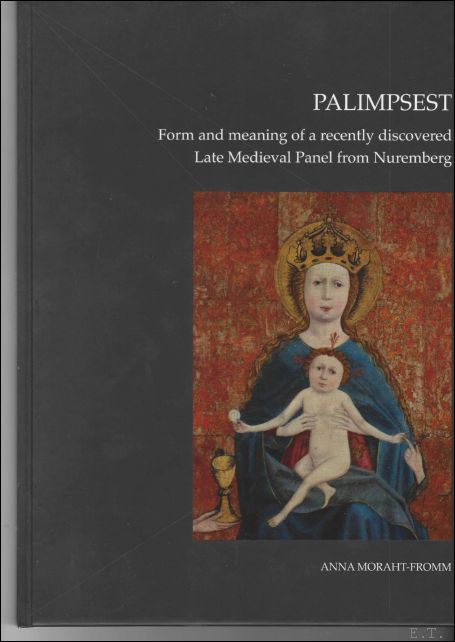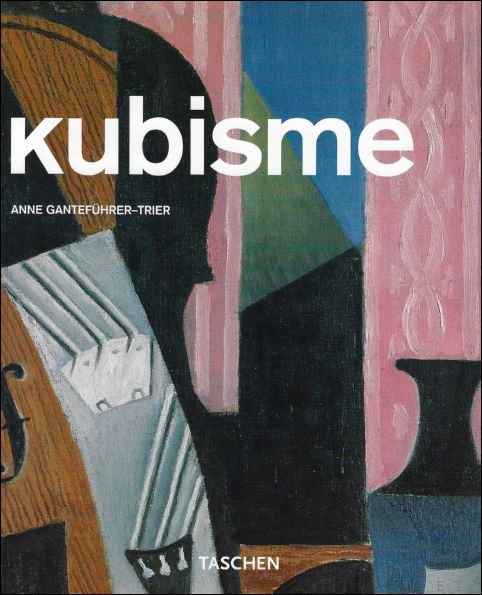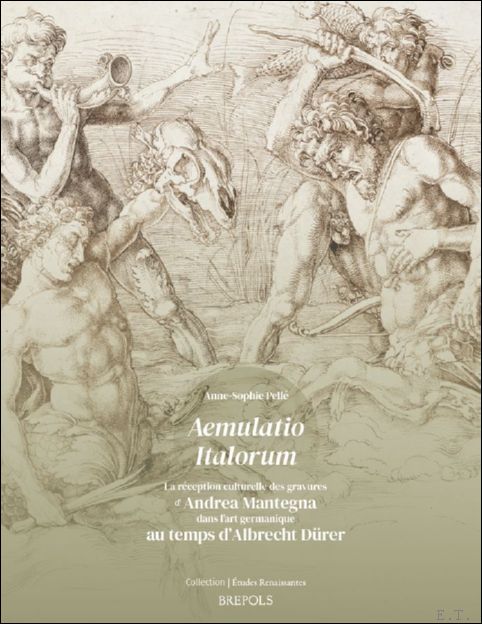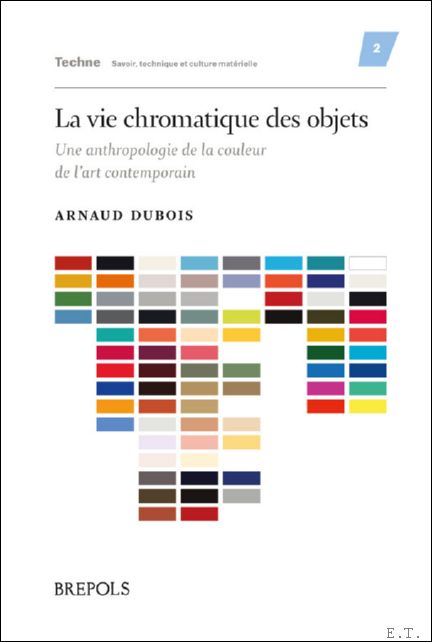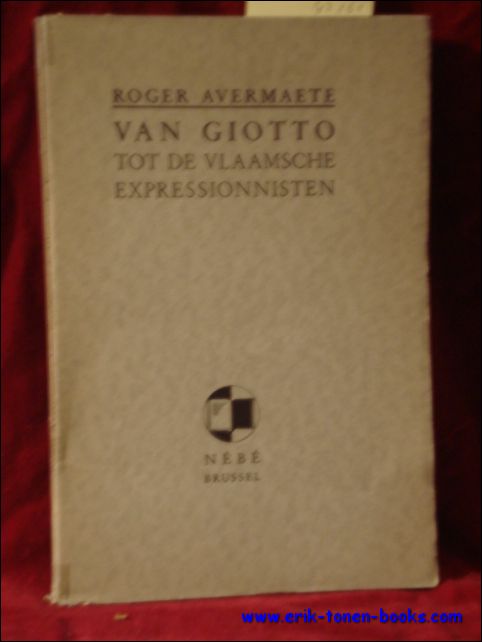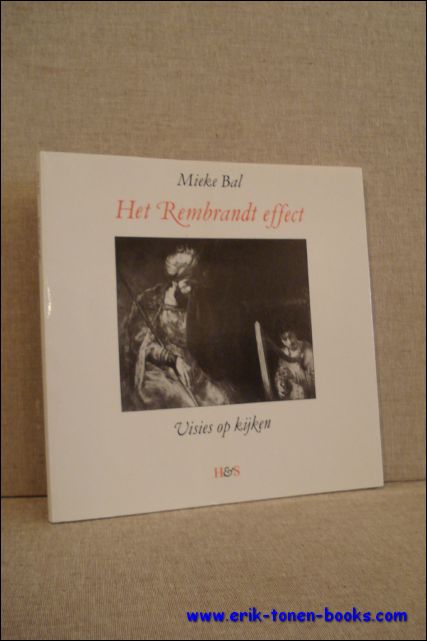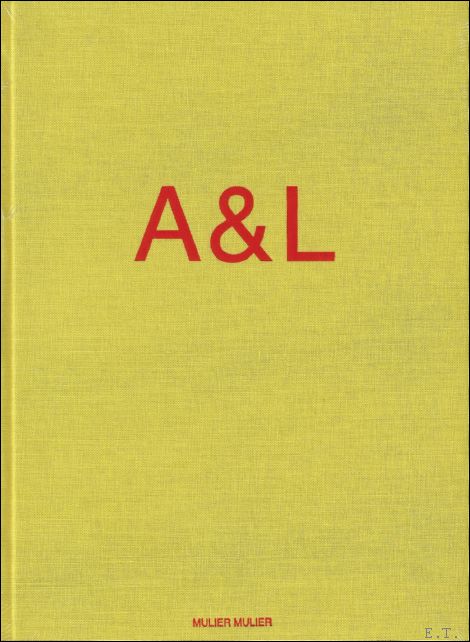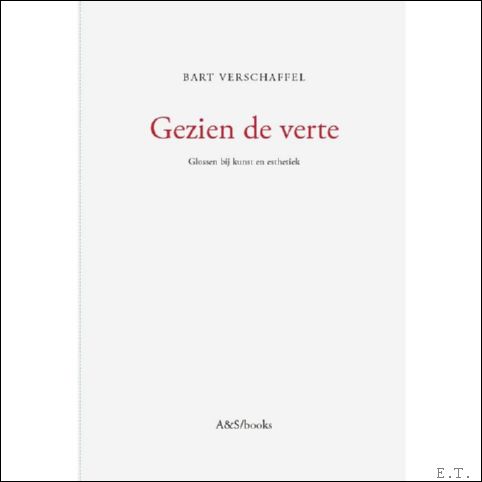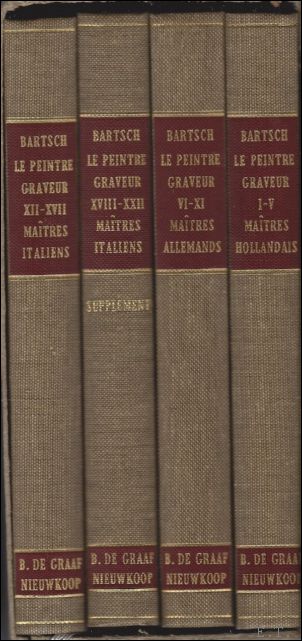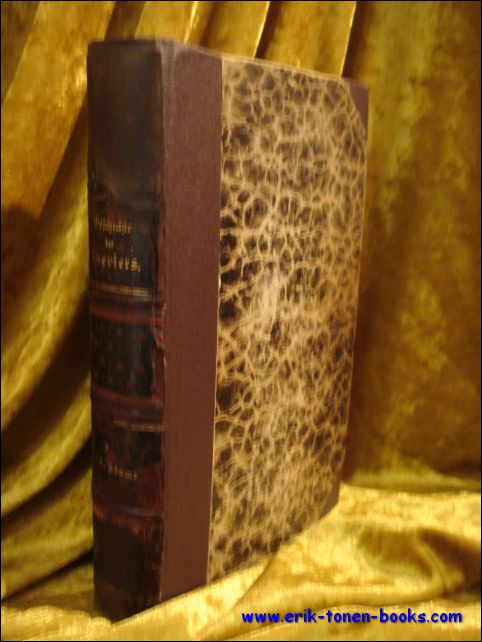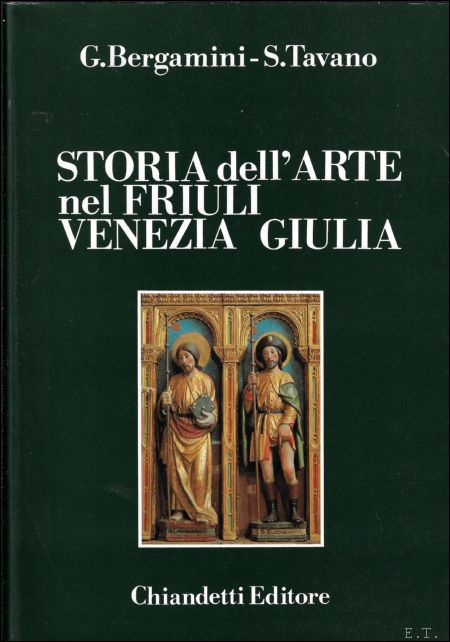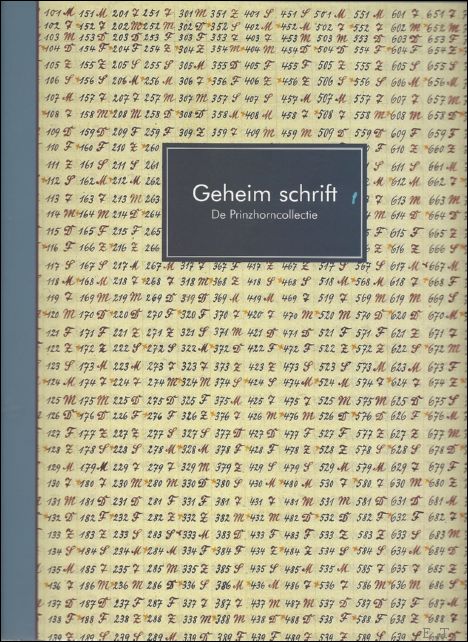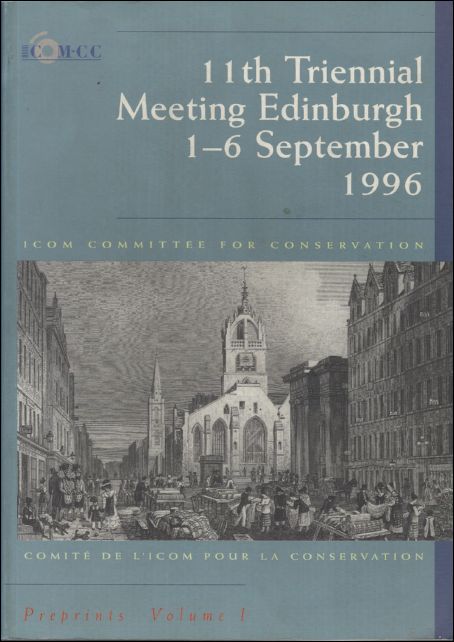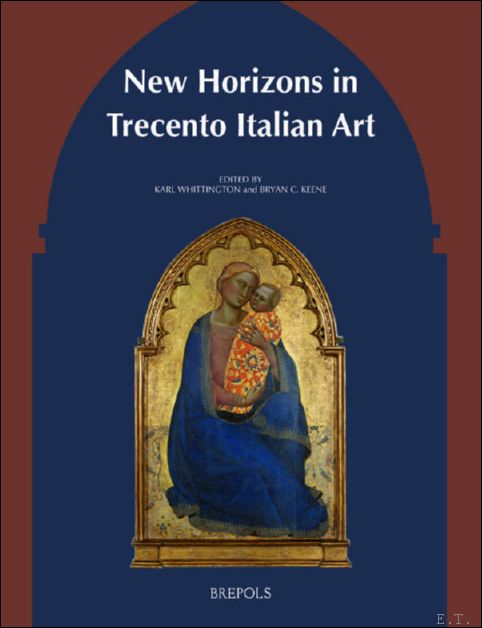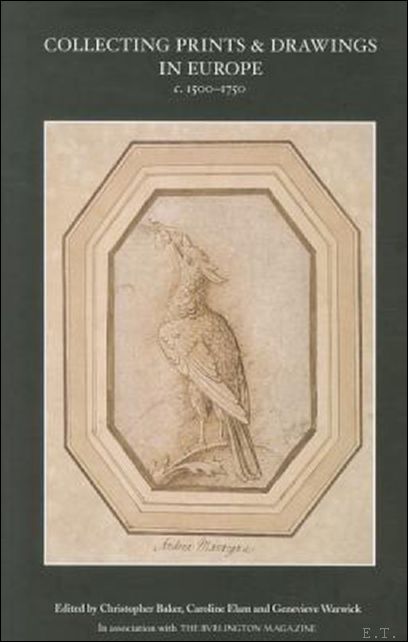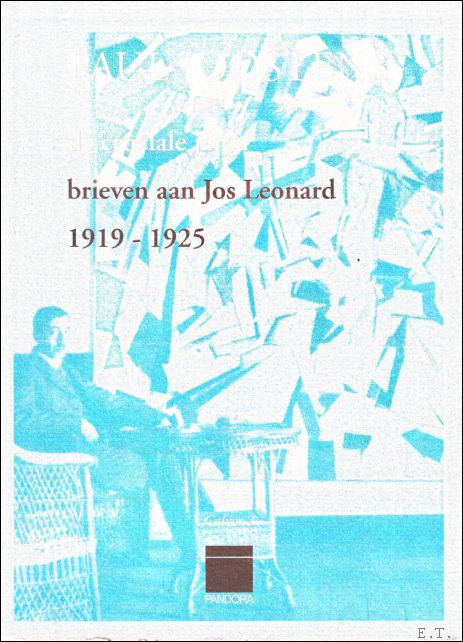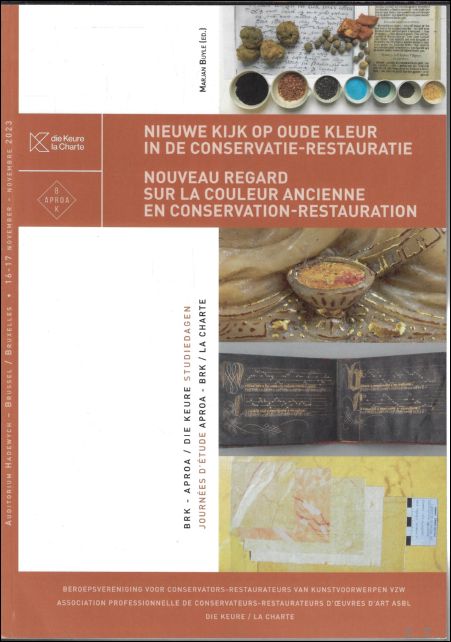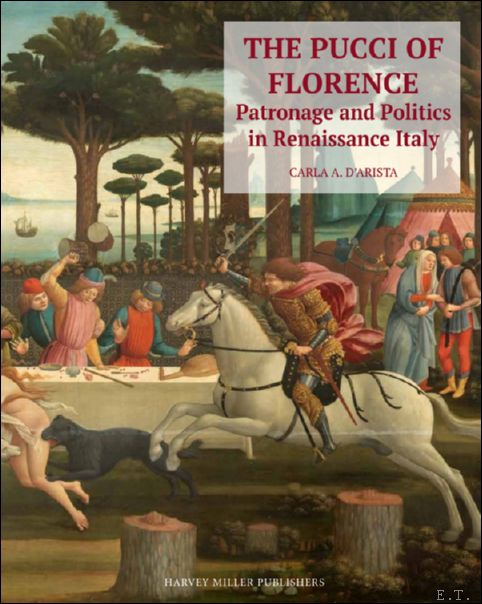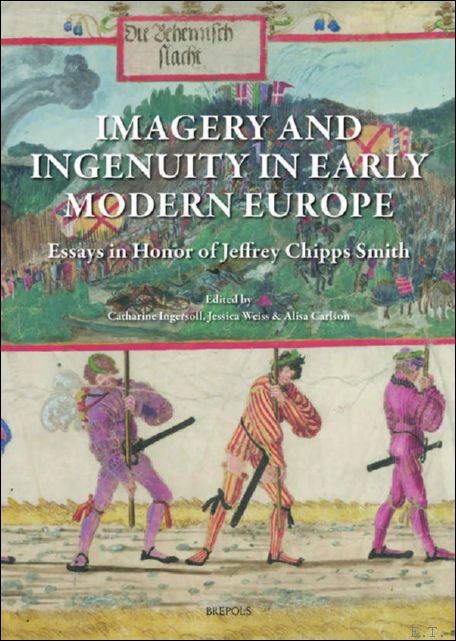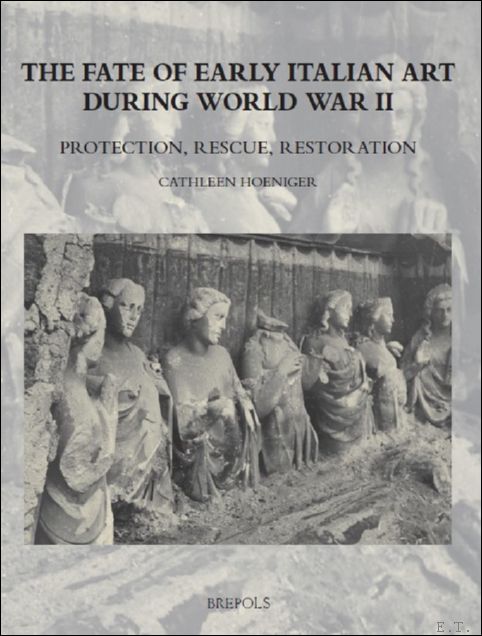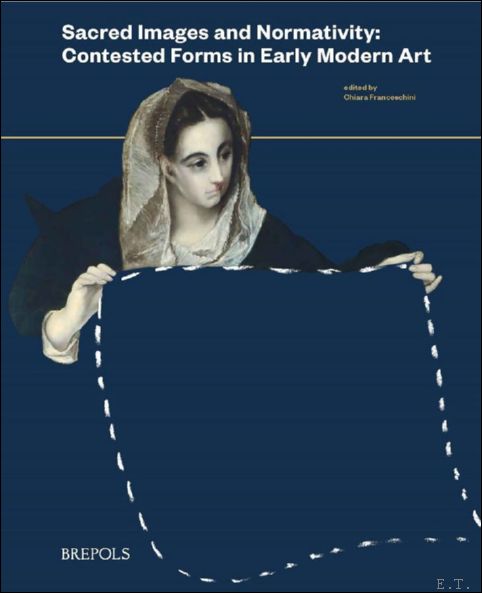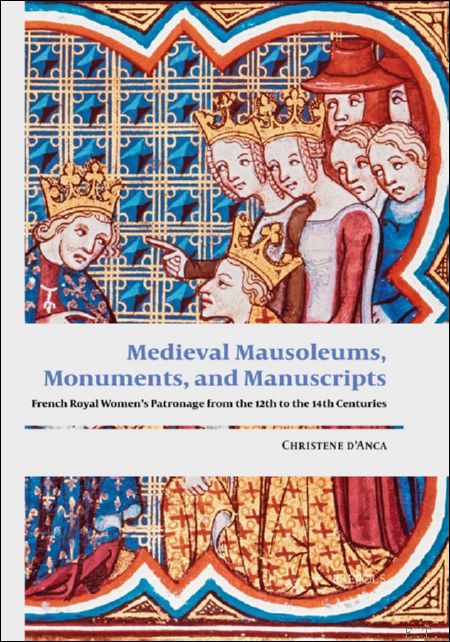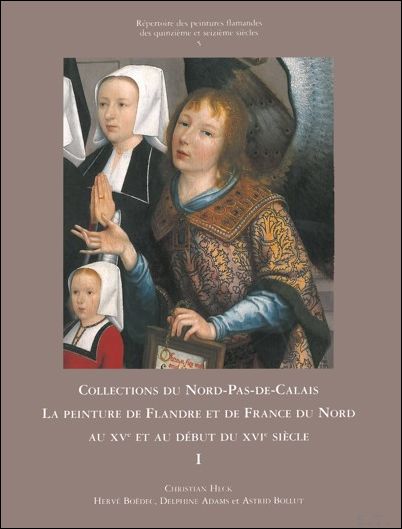Art sudies
242 livres trouvéz
--
Bulletin van het Koninklijk Instituut voor het Kunstpatrimonium 26: 1994/1995 / Le Bulletin de l'Institut royal du Patrimoine artistique
1994/1995. softcover, 253 pages NL/FR.
Référence: 50911 | Prix: EUR 25.00
--
BULLETIN. KONINKLIJK INSTITUUT VOOR HET KUNSTPATRIMONIUM/ INSTITUT ROYAL DU PATRIMOINE ARISTIQUE. 28 / 1999/2000
2002. softcover, 299 pages illustre.
Bulletin 28 - 1999/2000 L. Masschelein-Kleiner, Editorial / Ten geleide 5 R. Donceel, L. Wouters, A. Aerts, K. Janssens, F. Adams, Ch. Fontaine-Hodiamont, Antique Glass from Khirbet Qumran. Archaeological Context and Chemical Determination 9 D. De Jonghe, Merkwaardig Textiel : de pontifikaalhandschoenen van de H. Germanus van Parijs en een linnen fragment met griffioenen : een technologisch onderzoek / Des tissus remarquables : les gants pontificaux de saint Germain de Paris et un fragment de toile de lin decore de griffons : etude technologique 41 D. Otjacques-Dustin, L. Reper (?), J. Sanyova, M. Serck-Dewaide, La Vierge a l'Enfant de la basilique Notre-Dame de Tongres / Madonna met Kind van de Onze-Lieve-Vrouwbasiliek van Tongeren 63 I. Leirens, B. Reynders, Les sculptures du portail occidental de la collegiale des Saints-Pierre-et-Guidon d'Anderlecht. Apport de l'etude technique et materielle / De beelden van het westelijke portaal van de collegiale Sint-Pieter- en Guidokerk van Anderlecht. Bijdrage van het materieel en technisch onderzoek 85 J. Jansen, Maarten Van Calster "beldesnyder tot Mechelen" (?° ca.1574 - ? 1628) / Maarten Van Calster, tailleur d'images de Malines (?° ca.1574 - ? 1628) 97 De Bekering van Sint-Bavo door Pieter Paul Rubens. Studie, onderzoek en behandeling / La Conversion de saint Bavon de Pierre-Paul Rubens. Etude, examen et traitement 123 L. Robijns, Kunsthistorische beschouwingen / Le point de vue de l'histoire de l'art 123 L. Collin, De lotgevallen van het schilderij tot vandaag / Les tribulations du tableau jusqu'a nos jours 141 D. Verloo, Traitement de l'?uvre et technique picturale / Behandeling van het werk en picturale techniek 162 J. Wouters, Laboratoriumanalysen van bindmiddelen / Les liants au laboratoire 183 H. Coenen, Henri Evenepoel en het Belgisch orientalisme van de 19de eeuw / Henri Evenepoel et l'orientalisme belge du XIXe siecle 191 Recherches de laboratoire / Laboratoriumonderzoeken J. Vynckier, Dendrochronologisch onderzoek van enkele panelen uit van Eyck's retabel van het Lam Gods / Analyse dendrochronologique de quelques panneaux du retable de l'Agneau mystique de Van Eyck 237 Selection des activites recentes / Selectie uit recente werkzaamheden I. Geelen et W. Wailliez, Ensemble sculpte et Apotres du triforium, vers 1400-1409, Hal, ch?ur de l'eglise Saint-Martin / Triforiumensemble met apostelbeelden, ca. 1400-1409, Halle, koor van de Sint-Martinuskerk 243 L. Depuydt-Elbaum, R. Ghys, Antoine Van Dyck (1599-1641), Golgotha, 1630, Gand, eglise Saint-Michel / Antoon Van Dyck (1599-1641), Golgotha, 1630, Gent, Sint-Michielskerk 251 G. Dewanckel, Chef reliquaire et chasse de saint Vincent, XIIIe, XVIIIe, XIXe siecles, Soignies, collegiale Saint-Vincent / Reliekhoofd en schrijn van Sint-Vincentius, 13de, 18de, 19de eeuw, Zinnik, collegiale Sint-Vincentius. 255 K. Housiaux, Tunique copte en lin ecru, Egypte (Akhmim), Ve-VIe siecle, Bruxelles, Musees royaux d'Art et d'Histoire / Koptische tuniek in ecru linnen, Egypte (Akhmim), 5de-6de eeuw, Brussel, Koninklijke Musea voor Kunst en Geschiedenis 259 V. Vereecken, Antependium " Abraham ", 17de eeuw, Antwerpen, Sint-Carolus Borromeuskerk / Antependium " Abraham ", XVIIe s., Anvers, eglise Saint-Charles-Borromee 263 Ch. Fontaine-Hodiamont, H. Wouters, Ensemble de sept verres gallo-romains provenant de tombes diverses, Liege, Musee d'Archeologie et d'Arts decoratifs (Musee Curtius) / Ensemble van zeven gallo-romeinse glazen uit verschillende graven, Luik, Musee d'Archeologie et d'Arts decoratifs (Musee Curtius) 267 Ch. Fontaine-Hodiamont, Calice elance a tige creuse, fin du XIVe -debut du XVe siecle, Liege, Musee d'Art religieux et d'Art mosan / Slanke kelk met hol voetstuk, einde 14de-begin 15de eeuw, Luik, Musee d'Art religieux et d'Art mosan 273 Ch. Fontaine-Hodiamont, Blason en vitrail aux armes de Bourgogne, dernier tiers du XIVe - premier tiers du XVe siecle (blason) et troisieme quart du XVIe siecle (plombs), Coxyde, Musee de l'abbaye des Dunes / Wapenschild in glasraam met de wapens van Bourgondie, laatste derde van de 14de - eerste derde van de 15de eeuw (blazoen) en midden 16de eeuw (lood), Koksijde, Museum van de Duinenabdij 277 Ch. Fontaine-Hodiamont, Masque precolombien mixteque, postclassique recent, 1200-1521, Bruxelles, Musees royaux d'Art et d'Histoire / Pre-Columbiaans masker, Mixteekse cultuur, recente postklassieke periode, 1200-1521, Brussel, Koninklijke Musea voor Kunst en Geschiedenis 285 Bibliographie du personnel et des collaborateurs de l'Institut 1999/ 2000 - Bibliografie van het personeel en van de medewerkers van het Instituut 1999/2000 291
Référence: 50913 | Prix: EUR 25.00
--
Collecting Asian Art. Cultural Politics and Transregional Networks in Twentieth-Century Central Europe
Leuven, UPL - KU Leuven, 2024. Paperback, 272 pages, 234 x 156 x 13 mm,Illustrations and other content description: 32 pp. in colour. English text. ISBN: 9789462703780
Museum collections of Asian art in Central Europe. Rather than centering on the well-known collections in Western European and North American museums, Collecting Asian Art turns to museum collections of Asian art in Central Europe which emerged from the late 19th century onwards. Highlighting the dimensions of Central European connectedness, this volume explores how these collections evolved and changed under changing cultural and political conditions from the pre-World War I to the post-World War II periods. With a primary focus on collections of East Asian, South Asian, and West Asian art in Vienna, Prague, Berlin, Warsaw, Kraków, Budapest, and Ljubljana, it outlines the transregional connections and networks that gradually developed. Collecting Asian Art locates Asian art across the twentieth-century in Central Europe via discourse and ideology, and discusses key collections and the way individual collectors built their networks. It thus explores transregional connections that developed through collecting activities and strategies in the prewar, interwar and postwar eras. Contributors also examine the personal connections between a group of Indologists from postwar Prague and modernist Indian artists from the early 1950s to the 1980s and also discuss the systematic archiving of East Asian art collections in Slovenia. A concluding conversation looks at colonisation and decolonisation from a broader perspective by approaching it through recent art historical discussions on the global dimensions of modernism. By defining the region through its external relationships and its entanglements with regions across Asia rather than as a self-contained unit, the contributions in this volume outline how these transregional connections and networks evolved and changed over time, thus highlighting their singularity in comparison to developments in Western Europe. Based on recent research, Collecting Asian Art reveals neglected sources while reinterpreting well-known ones. Contributors: Zdenka Klimtová (National Gallery in Prague); Agnieszka Kluczewska-Wójcik (Polish Institute of World Art Studies); Partha Mitter (University of Sussex); Michaela Pej?ochová (National Gallery in Prague); Uta Rahman Steinert (Staatliche Museen zu Berlin); Iván Szántó (Eötvös Loránd University); Nata?a Vampelj Suhadolnik (University of Ljubljana); Johannes Wieninger (MAK ? Museum of Applied Arts); Tomá? Winter (Czech Academy of Sciences).
Référence: 63934 | Prix: EUR 59.75
A. Massing;
Painting Restoration Before the Restauration. The Origins of the Profession in France,
Turnhout, Brepols, 2012. Hardback, 320 p., 204 b/w ill., 240 x 280 mm. ISBN: 9781905375349
The art of painting restoration is almost as old as the art of painting itself. Accidents and time inevitably alter the appearance of a painting, and these changes begin as soon as it leaves the artist's easel. Purposeful alterations due to changes in taste have also contributed to transformations that paintings often underwent. Clearly the type of restoration procedures considered ethically acceptable have changed over the centuries. From the Renaissance until the end of the nineteenth century, European paintings were considered as two-dimensional illusions of a three-dimensional space, and any disruption to this illusion was considered as damage requiring repair. There was no acknowledgement of painting supports as an integral part of a picture; only the paint layer and the subject represented were appreciated. As a result, panels were often thinned and cradled in order to flatten the painted surface so that the image depicted could be viewed with less distraction. Supports were even considered replaceable. Total transfer of a painted surface onto a new surface was an acceptable procedure in the eighteenth century - even until the mid-twentieth century. Invisible retouching was used with the intent of returning the illusion of the painted surface to its 'original state'; the history of the work was not important. Until recent times, it was even acceptable to alter the format of a work of art to fit a frame or a space on the wall. Traditionally, if a painting was accidentally damaged or if 'adjustment' were required, a painter was entrusted with this task. In the past, the professions of painter and painting restorer overlapped, and both were trained as apprentices. Gradually the professional painting restorer appeared in Europe, and by the mid-eighteenth century, the profession was established. Earlier examples of professional restorers, especially in Italy, have been recorded while in other European countries, such as Britain, the career of the professional painting restorer began much later. During the later part of the eighteenth century in France, the painting restorers of the French Royal Collection became celebrated throughout Europe for their achievements. The political situation had an important influence on the development of the profession in France. The reigns of Francois I (1515-47), Louis XIV (1643-1715), Louis XVI (1774-93), and then the coup d'etat by Napoleon Bonaparte and the First Napoleonic Empire (1804-14) led to an increasing centralisation of the French Empire. The arts were meant to reflect the power of the state; thus Louis XIV and his political advisor and Surintendent from 1661 to 1685, Jean-Baptiste Colbert (1619-83), became the patrons of the French Academie de Peinture et Sculpture founded in 1648. A revision of the Academy's statutes in 1665 required students to submit annually drawings that focused on the heroic actions of the king. Paintings conferred status on their owner - in this instance the king and the French nation. It then became a necessity to have the paintings on display looking their best, and the skill of the French painting restorers was even used as a justification for Napoleon's policy of confiscation of works of art from all over Europe. The relationship between the French government's administration, firstly under the Ancien Regime, then under the new Republic, and the painting restorers they employed and supervised is related in this book. The manner in which changes occurred involves colourful personalities whose stories are often amusing and sometimes poignant, but above all they help us to understand the present-day situation. For during the turbulent years of the French Revolution new patterns emerged, which to a large extent remained in place in France for over two centuries. New book.
Référence: 32442 | Prix: EUR 137.00
Ad J. Meskens
Between Tradition and Innovation
Gregorio a San Vicente and the Flemish Jesuit Mathematics School
Brill, 2021. Hardcover, 294 pages Illustrated. ISBN: 9789004414990
In Between Tradition and Innovation, Ad Meskens traces the profound influence of a group of Flemish Jesuits on the course of mathematics in the seventeenth century. Using manuscript evidence, this book argues that one of the Flemish mathematics school?s professors, Gregorio a San Vicente (1584?1667), had developed a logically sound integration method more than a decade before the Italian mathematician Bonaventura Cavalieri. Although San Vincente?s superiors refused to grant him permission to publish his results, his methods went on to influence numerous other mathematicians through his students, many of whom became famous mathematicians in their own right. By carefully tracing their careers and outlining their biographies, Meskens convincingly shows that they made a number of ground-breaking contributions to fields ranging from mathematics and mechanics to optics and architecture.
Référence: 61994 | Prix: EUR 149.90
Albert Roskam
Dazzle painting: kunst als camouflage, camouflage als kunst.
Rotterdam, Kunstprojecten, 1987. softcover, 80 pagina's, met illustraties, goed exemplaar. ISBN: 9071893022
Camouflage is in de Eerste Wereldoorlog voor het eerst systematisch toegepast. Het beschilderen van schepen met grillige patronen en kleuren - Dazzle Painting - had als doel de periscoopwaarneming te bemoeilijken door verwarring te stichten omtrent afstand, koers en snelheid van het waargenomen schip. Behandeld wordt ook de relatie tussen de Dazzle-ontwerpen, de Vorticisten, het Britse Cubisme en de Futuristen.
Référence: 58132 | Prix: EUR 95.00
Alexandra Hoare
The Letters of Salvator Rosa (1615-1673). An Italian Transcription, English Translation and Critical Edition
Brepols - Harvey Miller, 2019. Hardback, 2 vols, vi + 1104 pages, Size:225 x 300 mm, Illustrations:4 b/w, 47 col., Languages: English, Italian. ISBN: 9781905375882
Summary These two volumes comprise the first English translation and critical edition of the extant letters of the Neapolitan painter and satirist Salvator Rosa (1615-1673). Presented in a revised Italian transcription and a complete English translation, the letters are accompanied by extensive historical notes, a philological apparatus, a comprehensive index, appendices, and photographs of the manuscripts. A number of previously unpublished letters also appear here for the first time. Unique among early modern primary documents for their quantity and exceptional for their candour, Rosa's letters are not only a fascinating and intimate chronicle of the artist himself but also an invaluable record of the activities and aspirations of his contemporaries,?offering useful insights into historical persons, ideas and events. An indispensable early modern primary source, comparable in significance to the letters of Michelangelo, Nicolas Poussin or Peter Paul Rubens, Rosa's letters here receive a long-overdue analysis and an English translation that seeks to make more accessible their contents, frequently impenetrable to even native Italian speakers.
Référence: 66036 | Prix: EUR 250.00
ALEXANDRESCU, S., PARRET, H. en QUIK, T.( red.).
HEMEL EN AARDE. WERELDEN VAN VERBEELDING.
Amsterdam, Uitgeverij John Benjamins, 1994. Geillustreerde cover, frontispice, 17x24 cm., 280 pp. en XLIX kleurenillustraties. ISBN: 9027220891
Begeleidend boek bij de gelijknamige tentoonstelling in het Bonnefantenmuseum te Maastricht ( 23 november 1991 - 23 februari 1992 ).
Référence: 1249 | Prix: EUR 10.00
Amanda Luyster (ed)
Bringing the Holy Land Home. The Crusades, Chertsey Abbey, and the Reconstruction of a Medieval Masterpiece
Brepols - Harvey Miller, 2022. Hardback, 376 pages, Size:240 x 240 mm, Illustrations:136 col., Language: English. ISBN: 9781912554942
Summary A carefully-integrated group of studies begins with the so-called ?Chertsey? ceramic tiles, depicting combat between King Richard the Lionheart and Saladin. Found at Chertsey Abbey not far outside London and admired since the nineteenth century, we present here a new reconstruction of both the tiles and their previously-undeciphered Latin texts. The reconstruction demonstrates not only that the theme of the entire mosaic is the Crusades, but also that the overall appearance of the tiles, when laid as a floor, draws from the composition and iconography of imported Islamic and Byzantine silks. Essays illuminate specific material contexts that similarly witness western Europe's, and particularly England's, engagement with the material culture of the eastern Mediterranean, including ceramics, textiles, relics and reliquaries, metalwork, coins, sculpture, and ivories. TABLE OF CONTENTS CONTRIBUTORS FOREWORD by Michael Wood DIRECTOR'S FOREWORD by Meredith Fluke PREFACE by Amanda Luyster We who were Occidentals have now become Orientals CATALOGUE ESSAYS Amanda Luyster The Chertsey Tiles: Reassembling Fragments of Meaning Suleiman A. Mourad A Clash of Civilizations? Diverse Motivations, Multiple Actors, and the Hidden Richness of Muslim Historical Sources David Nicolle The Crusades: A Short History Euan Roger So Much National Magnificence and National History: The Foundation, Structure, and Fall of Chertsey Abbey Richard A. Leson Epic Sensibilities in French Art of the Crusader Period Cynthia Hahn Re-creating the Holy Land at Home: Relics from the East in England Elizabeth Dosp?l Williams The Mobility of Fabric: Textiles in and around Medieval Eurasia Eva R. HoFFman Crusaders in Jerusalem: Frankish Encounters with Idols, Holy Monuments, and Portable Objects Sarah M. Guérin Oliphants and Elephants: African Ivory in England Scott Redford A Cupbearer Crosses Cultures: Figural Ceramic Traditions of the Eastern Mediterranean Paroma Chatterjee Citizens and Invaders: Encounters with Sculpture in Constantinople during the Fourth Crusaded OBJECTS IN FOCUS Andrea Myers Achi Black Fighters on a Late Antique Textile Sean Gilsdorf St. Menas Pilgrim Flask Nina Masin-Moyer Brooch/Amulet with Inscribed Arabic Seal Nina Masin-Moyer Enkolpion Reliquary Cross Nina Masin-Moyer Chess Piece with King or Vizier Alicia Walker So-called Crusader's Bowl A. L. McClanan Architectural Fragment with Griffin Nina Masin-Moyer Amphora with Confronted Hybrid Figures Meredith Fluke Section of a Cassone Panel with Beasts in Roundels Grace P. Morrissey Lusterware Bowl with Figure Eurydice S. Georganteli Gold Penny of Henry III Nina Masin-Moyer Gemellion with the Arms of the Latin Kingdom of Jerusalem Students From Boston College The Morgan Picture Bible WORKS CITED INDEX
Référence: 64565 | Prix: EUR 100.00
Ana Diéguez, Angel Rodriguez Rebollo (eds)
The Pictor Doctus, between Knowledge and Workshop. Artists, Collections and Friendship in Europe, 1500-1900
Brepols, 2022. Paperback, 279 pages, Size:216 x 280 mm, Illustrations:11 b/w, 70 col., Language(s):English, Spanish. ISBN: 9782503589084
Summary Recent research on the collections treasured by artists during their lifetime, or those collections they had access to, has contributed significantly to the understanding of their own compositions. Traditional historiography has favoured the study of the royal and aristocratic collections that could have inspired artists rather than of the artists' own collections. Only those of the 'great' artists, such as Rubens, Bernini, Velázquez or Mengs, have been comprehensively examined. In the eighteenth century, the notion of collecting itself was transformed. An aesthetic taste was fostered and developed through the gathering of objects, and the personal collection of an artist could therefore provide the key to a more thorough understanding of their production. The nineteenth century witnessed artists bequeathing their collections to different institutions, sometimes even creating their own institutional collection. Architects, painters, sculptors and goldsmiths assembled some of the most important artistic collections of their time in their workshops. TABLE OF CONTENTS Introduction. The Pictor Doctus and the Artists' Collections: From Taste to a Training Resource ? Ana Diéguez-Rodríguez & Ángel Rodríguez Rebollo I. Learning from the Artistic Collections, Libraries and Workshops Pablo de Céspedes, arte y humanismo en su biblioteca. Una nueva propuesta de interpretación en torno a su colección bibliográfica ? Alejandro Jaquero-Esparcia Bernardino Poccetti as Collector ? Alexander Röstel & Grant Lewis ?Ha muerto Rubens?. El eco de su colección en el rey de España ? Matías Díaz Padrón Francisco de Solís, Collector of Drawings ? Ángel Rodríguez Rebollo & Isabel García-Toraño II. Coteries: The Role of the Friendship and the Academies Vicente Carducho's Modelling of Artistic Practice and Connoisseurship ? Tiarna Doherty Between Guild and Academy: Collections of Central European Painters as a Source of Artistic Progress or a Steady Livelihood? ? Tomá? Vale? French Barbizon Landscapes Collected by Pre-Raphaelite and Aesthetic Movement Artists in the second half of the Nineteenth Century ? Sarah Herring Women Painters and Academicians: Models and Collections ? Mariángeles Pérez-Martín III. Artists at the Court: Experience and Erudition Court Institutions and their Impact on Artworks by the valet de chambre Artists Serving at the Valois-Burgundian Court during the Fifteenth Century ? Oskar Rojewski Velázquez and the Royal Collection. Opening the Pandora's Box ? Miguel Hermoso Cuest Index of Names
Référence: 64806 | Prix: EUR 125.00
Anna Koopstra
Jean Bellegambe (c. 1470-1535/36)
Making, Meaning and Patronage of his Works
Brepols - Harvey Miller, 2023. Hardback,Pages: 160 pages, Size:210 x 297 mm Illustrations:10 b/w, 105 col.Language(s):English. ISBN: 9782503574370
The book by Anna Koopstra about Jean Bellegambe adds an extremely careful, thorough, and beautifully produced study to the monographs on early Dutch painters. (...) More traditional art historical research?iconographic, stylistic, archival, and historiographic?is combined with modern technical research and a keen eye for drawings and graphics as visual sources for the artist. (?) The beautifully produced and clearly written book represents excellent and versatile art historical research that, through in-depth analysis of a small group of characteristic artworks, offers a new perspective on an important artist, his work and methods, as well as the impact of that distinctive body of work." Drs. Lidewij de Koekkoek (VNK, Frans Hals Museum) - Jury President - 2023 Karel van Manderprijs BIO Anna Koopstra (1980) studied art history at the University of Groningen (MA, 2004) and obtained her doctorate from the Courtauld Institute of Art (PhD, 2016). She has held curatorial positions and research fellowships at the Suermondt-Ludwig Museum (2005-08), The Metropolitan Museum of Art (Slifka interdisciplinary Fellow, 2008-10), The National Gallery (2015-17), and the Courtauld (Associate Caroline Villers Research Fellow, 2016/17). Her research focuses on the technical investigation of paintings, and in particular on the making and meaning of early Netherlandish paintings. SUMMARY Jean Bellegambe (c. 1470- 1535/36), whose career as far as we know spanned the first three decades of the sixteenth century, was a successful painter. His patrons included some of the most high-ranking clerics in the Habsburg-Burgundian Netherlands as well as members of the ruling class of Douai, the town where he lived and worked all his life. This is the first study to appear since Dehaisnes' 1890 monograph that is exclusively devoted to the artist. By reassessing primary evidence - archival documents and material evidence from the works of art themselves - it aims to highlight Bellegambe's artistic achievements. Close scrutiny of his paintings and investigation of the artist's working methods will show that Bellegambe visualised the concerns of his patrons by closely linking the physical characteristics of his works to their original imagery, function and use. This volume presents a series of five case studies of his works that were made for a monastic community, two individual clerics, a town hall and a bourgeois layman, thus providing rich evidence of patronage and audiences. The objective here is to examine how Bellegambe met the challenges posed by these commissions, and to gain further insight into the practice of a skilled artist who - rooted in a long line of craftsmanship and artistic tradition and in close collaboration with his colleagues and patrons - produced a body of highly original works. TABLE OF CONTENTS INTRODUCTION CHAPTER I The Artist?s Life and Career Life Works Posthumous legacy CHAPTER II Oeuvre and Patrons The Anchin Polyptych Similar patrons, similar commissions Other works CHAPTER III Preliminary Observations on Materials and Working Methods Panels and frames Underdrawing and painting technique Technical evidence and questions of attribution Workshop CHAPTER IV Jean Bellegambe and the Convent of Flines: Reconsidering The Cellier Altarpiece Monastic reform and the convent of Flines The evolution of the composition Interpreting the iconographic program Location, audience, date CHAPTER V Clerical Devotion and the Monastic Milieu: The Diptych of the Virgin and Child with Saint Bernard and an Unidentified Cistercian Monk The Virgin and child as an object of clerical devotion The abbess as exemplar CHAPTER VI Self-Representation and Piety for the Here and the Hereafter: Abbot William of Brussels and the Triptych of the Annunciation William of Brussels as a patron Function and location CHAPTER VII Painting as a Moral Compass: Triptych of the Last Judgment The Last Judgment, the Four Last Things, and visions of heaven and hell Function and audience CHAPTER VIII Civic Duty, Charitable Giving, and the Wish to Be Commemorated: The Pottier Triptych and the Pottier Family Reviewing the archival evidence Iconography and meaning Scenes of the life of Saint Anne, demi-grisaille, and the reality of giving CONCLUSION Bibliography
Référence: 62968 | Prix: EUR 100.00
Anna Moraht -Fromm
PALIMPSEST form and meaning of a recently discovered late medieval panel from Nuremberg.
BE -, De Backker medieval art. Hardcover 57 PAGES Color illustrations .
PALIMPSEST form and meaning of a recently discovered late medieval panel from Nuremberg.
Référence: 64385 | Prix: EUR 22.50
Anne Ganteführer-Trier, Uta Grosenick, Sabine Blessmann, Nannie Nieland-Weits, Aafke Boerma
Kubisme
Taschen, 2005. 1. Softcover, 96 pagina's, NL, 230 x 185 mm, met illustraties in kleur, over de meesters in het kubisme. ISBN: 9783822842362
Het kubisme is een stroming binnen de moderne kunst van het begin van de 20e eeuw. Het is een van de vier grote schilderstijlen in de Europese schilderkunst van de 20e eeuw. Het kubisme vierde zijn hoogtijdagen als avant-gardekunststroming in de periode van 1906 tot circa 1920
Référence: 59854 | Prix: EUR 29.95
Anne-Sophie Pellé
Aemulatio Italorum. La réception culturelle des gravures de Mantegna dans l?art germanique au temps d?Albrecht Dürer
Brepols, 2023. Paperback, 336 pages, Size:210 x 270 mm, Illustrations:0 b/w, 151 col., Language: French. ISBN: 9782503604985
Summary À la Renaissance, si le medium de la gravure permet désormais aux artistes de rivaliser entre eux à distance, dès la fin du xve siècle, la diffusion des modèles gravés par l'atelier du prestigieux peintre de cour des marquis de Mantoue, Andrea Mantegna, a suscité sur le territoire germanique une véritable émulation d'ordre culturelle, dans laquelle la question du rapport à l'identité occupe une place fondamentale. Dès lors, dans les images, deux paradigmes se dessinent : d'une part le Welsch, qui désigne ce qui est romain, de style à l'antique, et, plus généralement, italien ; d'autre part le Deutsch, qui renvoie à une tradition artistique et aux coutumes typiquement germaniques. Inscrite dans la problématique des transferts culturels, cette étude analyse, dans une approche résolument pluridisciplinaire, les différentes transformations iconographiques, formelles et stylistiques dont les motifs empruntés aux estampes de Mantegna ont fait l'objet ainsi que l'appareil rhétorique qui accompagne ces transformations pour mieux leur donner du sens (comparaison, parodie, dissimulation, etc.). De Dürer à Peter Vischer le Jeune à Nuremberg, de l'atelier de Daniel Hopfer à celui de Jörg Breu l'Ancien à Augsbourg, d'Hans Baldung Grien à Matthias Grünewald dans la région rhénane et en Alsace, d'Urs Graf à Hans Holbein le Jeune à Bâle, de l'atelier d'Altdorfer implanté à Ratisbonne à celui de Wolf Huber, situé à Passau : tous les centres artistiques et humanistes de la Renaissance germanique sont abordés. TABLE OF CONTENTS Introduction I. Des milieux de cour en interaction I.1. Ambition politique et préjugés culturels I.2. Mobilités artistiques et transferts des savoirs II. Une stratégie du secret III. Des gravures en dialogue avec la culture humaniste III.1. De l'héritage de Vittorino da Feltre au De pictura d'Alberti III.2. Dans le sillage d'Homère, de Virgile et de Politien IV. Mantegna dans les collections d'estampes germaniques IV.1. Les marchands germaniques, entre Venise et l'Empire IV.2. Les humanistes IV.3. Les modèles gravés dans les ateliers d'artistes. V. Un idéal hybride V.1. Peindre, dessiner, écrire V.2. Le Deutsch et le Welsch: une construction germanique V.3. Germania vetus, Germania nova : le primitif et le civilisé V.4. L'hybridité en crise chez Peter Flötner VI. La réflexion anthropologique d'Albrecht Dürer VI.1. L'expérience philosophique de la frontière VI.2. « Woster serfitor, Alberto Dürer » VI.3. Comparatio. La Nurembergeoise et la Vénitienne VI.4. L' ambiguitas du Welsch VII. Dürer versus Mantegna : le topos germanique de la compétition artistique VII.1. Un exercice de traduction VII.2. La réminiscence d'Apelle VII.3. Une compétition pour la postérité VIII. Émulation et « nouvel art de peindre » VIII.1. Les gravures religieuses de Mantegna et la diffusion des principes d'Alberti VIII.2. Compléter le manifeste : la Mise au tombeau conservée à Klosterneuburg VIII.3. Un « nouveau Mantegna » : la Descente de croix de Hans Mielich VIII.4. Les modèles mantégnesques et la construction perspective dans l'art germanique VIII.5. La génèse d'Adam : Dürer, Peter Vischer le Jeune et le Bacchus de Mantegna IX. De la transgression à la démesure: l'émulation jusqu'à l'excès IX.1. Le raccourci comme expérience formelle et spirituelle chez Altdorfer IX.2. Motus animi : les effets dramatiques extrêmes IX.3. Au-delà de toute mesure: l'invention du corps extrême X. Explorer les confins de l'âme : les gravures mythologiques de Mantegna et le thème de l'imagination X.1. Le Combat des dieux marins, les Bacchanales et la problématique du fingere X.2. Le thème du songe dans La Bacchanale à la cuve X.3. Mantegna affabulateur: le principe de l'illusion perceptive XI. La réception des estampes mythologiques de Mantegna et la diffusion du Néoplatonisme à Nuremberg XI.1. Transférer la lyre d'Apollon au nord des Alpes : le cercle humaniste de la Poetenschule XI.2. La gravure du Monstre marin d'Albrecht Dürer : une illustration de la théorie de la vacance de l'âme ? XI.3. « Technè phantastikè » : Dürer et l'approche sophistique de l'imitation XI.4. « Phantasia furens »: débordement poétique et enfer imaginal XII. Pour une réception iconoclaste des estampes mythologiques de Mantegna XII.1. Mutiler XII.2. Dissimuler XII.3. Renverser Bibliographie Textes sources Littérature secondaire Index des noms propres
Référence: 64326 | Prix: EUR 90.00
ARNAU, Frank;
L'ART DES FAUSSAIRES ET LES FAUSSAIRES D'ART,
Paris, Laffont, 1960. Relie, toile vert, 140 x 225mm., page de titre au vignette, 342pp.
Traduit de l'allemand par Edith Vincent. Bon etat.
Référence: 24749 | Prix: EUR 30.00
Arnaud Dubois
La La vie chromatique des objets. Une anthropologie de la couleur de l'art contemporain
Brepols, 2019. Hardback, 260 pages, Size:156 x 234 mm, Illustrations:10 b/w, 38 col., Language: French. ISBN: 9782503583211
Summary What are the relationships between color techniques and art practices? Should we study the materiality of color in order to highlight its fundamental social dimension? Is an anthropological study of contemporary colorist art a way to understand the links between technics, aesthetics and society? These are some of the questions addressed in this book that aims to offer a journey through industrial color production, based on case studies of French contemporary colorist art works. In this monograph, Arnaud Dubois develops a new theoretical framework to study color: "color acts"; along with "agglutination processes" and "actions upon chromatic matter." To think about color as an act consists in observing colorization practices and describing the work situations where these acts are performed. To analyze color acts is to consider the means of action implemented by the multiple actors in the colorization of artefacts and identify the possible logics of chromatic actions. Through a historical and ethnographic work, the 17 color objects studied in this book deploy a large spectrum of color practices and usages that are instrumental for understanding the social construction of color in contemporary Western Europe. Quelles relations observe-t-on entre les techniques de production des couleurs et les pratiques artistiques modernes ? Entretiennent-elles des rapports de configuration réciproque ? Doit-on considérer la dimension matérielle de la couleur pour illuminer son caractère proprement social ? Voici quelques questions qui sont débattues dans ce livre qui a pour ambition d'offrir un voyage au coeur de la production des couleurs du monde occidental contemporain à travers l'exemple de la fabrication d'objets de l'art contemporain. Dans ce travail, Arnaud Dubois déploie une nouvelle proposition analytique pour l'étude de la couleur en recourant à la notion « d'actes de couleur » - avec celles de « processus d'agglutination » et « d'actions sur la matière chromatique » - comme un nouvel outil théorique et méthodologique pour étudier les procédés de coloration. Penser la couleur comme un acte consiste à s'intéresser aux pratiques de colorisation et à décrire les situations de travail dans lesquelles sont effectués ces actes de couleur. Analyser les actes de couleur c'est donc en premier lieu s'intéresser aux moyens d'actions mis en oeuvre par des acteurs multiples dans la coloration d'artefacts et repérer s'il existe des logiques d'actions chromatiques. Les 17 objets de couleurs qui sont étudiés dans cet ouvrage et les acteurs multiples liés de façon hétérogène à ces artefacts déploient alors un spectre large de pratiques et d'usages de la couleur fort utile pour comprendre, à partir d'un travail historique et ethnographique, la construction sociale de la couleur en Europe. TABLE OF CONTENTS Introduction. Couleurs cachées, couleurs montrées Chapitre premier. Généalogie d'un faux dilemme moderne Chapitre II. Matérialités de la couleur contemporaine Chapitre III. L'invitation d'un artiste Chapitre IV. Le programme d'un architecte Chapitre V. Le contrat de design graphique Chapitre VI. La mise en patrimoine des couleurs Conclusion Index Bibliographie
Référence: 65991 | Prix: EUR 85.00
AVERMAETE, ROGER
Van Giotto tot de Vlaamsche expressionnisten
Uitgeverij Nebe, (ca. 1937),. ing. in-8?°, 23,5 x 15,5 cm, b/w ill., orig. wrappers.
Collection of short essays Giotto, Memlinc, Titian, Raphael, Durer, Rubens, Navez, De Smedt.
Référence: 42161 | Prix: EUR 15.00
BAL, Mieke;
HET REMBRANDTEFFECT. VISIES OP KIJKEN,
Utrecht, HES Uitgevers, 1987. Wit geillustreerde kartonomslag zwart/rood, 195 x 195mm., 48pp., illustratie z/w. ISBN: 9061942063
Persoonlijke gedachten over vijf schilderijen van Rembrandt. In goede staat.
Référence: 27556 | Prix: EUR 15.00
Baldwin / Ramsden.
Art & Language Works 1965 - 1978 / 2007 - 2008
Knokke Heist, Mulier Gallery, 2008. Hardcover, 91 pages, Illustrated. color. . ISBN: 9789081322225
Exhibition catalogue 02.08 - 30.09.2008
Référence: 56576 | Prix: EUR 20.00
Bart Verschaffel
Gezien de verte. Glossen bij kunst en esthetiek
A&S/Books, 2025. Paperback, Dimensions 215 x 140 mm, Illustrations several bw.ill., 256 Pages, Language Dutch (NL) ed. ISBN: 9789076714714
Zestien essays gepubliceerd tussen 1997 en 2024. Het gaat, zeer uiteenlopend, om glossen - verhelderende aantekeningen - bij algemene thema's zoals het belang van geschiedenis voor de kunst en de artistieke werking van het lelijke, parrhesia en artistieke vrijheid, het begrip van kairos, maar ook bij de stand van zaken in de kunstkritiek en de filosofie, en om besprekingen van Shakespeare's Hamlet, de avonturen van Nero & C°, Malpertuis van Jean Ray, en het abjecte in de verhalen van Toussaint van Boelare.
Référence: 67814 | Prix: EUR 26.00
BARTSCH, A
Le peintre graveur. Nouvelle edition. 4 Vols. I-IV: Dutch (and Belgian) artists; V-XI: German artists; XII-XXI: Italian artists; XXII: Supplements.
Nieuwkoop, De Graaf / Hildesheim, Olms, 1970. Gebonden, Hardcovers, Cloth, 4 vols.Small-size.
reprint of the 22 vols. (Wurzburg 1920-22) of this famous standard work in reduced form: each page of the reprint containing four pages of the original. Vols. I-IV: Dutch (and Belgian) artists; V-XI: German artists; XII-XXI: Italian artists; XXII: Supplements.
Référence: 51341 | Prix: EUR 250.00
BAUMER, P.
Geschichte des Breviers. Versuch einer quellenmassigen Darstellung der Entwicklung des altkirchlichen und des romischen Officiums bis auf unsere Tage. 1 e
Freiburg, Herdersche Verlagshandlung., 1895. Gebunden, 5x24 cm., 640 S., in good condition !!!
Référence: 27264 | Prix: EUR 85.00
BEKAERT, Geert ;
POP. HET WEZEN VAN DE KUNST,
Leuven, Davidsfonds, 1966. oorspronkelijk, geillustreerde kartonomslag zwart/ rood, 125 x 190mm., 64pp., z/w illustratie.
Horizonreeks nr. 2. In goede staat. scriptie over kunst
Référence: 28562 | Prix: EUR 12.50
Ben Stoltzfus
Magritte and Literature, Elective Affinities. Magritte?s interarts dialog with literature
The Belgian surrealist artist Rene Magritte (1898?1967) is well known for his thought-provoking and witty images that challenge the observer?s preconditioned perceptions of reality.
BE -, UPL, 2014. paperback, 288 p., English. ISBN: 9789058679604
Magritte and Literature examines some of the artist's major paintings whose titles were influenced by and related to works of literature. Baudelaire's The Flowers of Evil, Goethe's Elective Affinities, and Poe's The Domain of Arnheim are representative examples of Magritte's interarts dialog with literary figures. His strategy is to paint visible thought, and this reverse ekphrasis, the opposite of a rhetorical description of a painting, undermines the written text. When he succeeds,
Référence: 43735 | Prix: EUR 45.00
Bergamini / Tavano
Storia dell'arte nel friuli venezia giulia
IT., chiandetti editore, 1991. softcover 562 pages Illustrated.
dall'epoca romana al duecento
Référence: 51367 | Prix: EUR 35.00
Bettina Brand-Claussen |Torsten Kappenberg, Monika M.A. Jagfeld
Geheim schrift de Prinzhorncollectie
Museum Dr. Guislain, 2004. Softcover, 167 pagina's., 195 genummerde afbeeldingen in kleur en z/w.,. ISBN: 9789076745053
Boeken, schriften, kalenders en etc een tentoonstelling Prinzhorncollectie
Référence: 51159 | Prix: EUR 69.00
Bridgland, Janet (ed.)
Meeting ICOM Committee for Conservation. Triennial meeting, 11th, Edinburgh, Scotland, 1996
Place, publisher, year London : James and James (Science Publishers), 1996 ; VOLUME 1. only
1996. Softcover, Language(s) English, French Collation 2 v. (xiii, viii, 478 p.) ; illus., graphs ; 30 cm. ISBN: 9781873936504
Primary descriptors conservation; restoration; international committees; meetings. Language(s) Multiple languages Nature of contents Proceedings, final report of a meeting
Référence: 50909 | Prix: EUR 35.00
Bryan Keene, Karl Whittington (eds)
New Horizons in Trecento Italian Art
Brepols, 2021. Hardback, 320 pages, Size:216 x 280 mm, Illustrations:200 col., Language: English. ISBN: 9782503586182
Summary The fourteenth century in Italy, the age of Giotto, Dante, and Boccaccio, widely known as the trecento, was a pivotal moment in art history and in European culture. The studies in this volume present new approaches to art in this important but often neglected period of the late Middle Ages and early Renaissance. Scholars at various stages in their careers discuss a wide range of topics including architecture, cultural exchange, materiality, politics, patronage, and devotion, contributing to a new understanding of how art was made and experienced in this nodal century. These papers were originally presented at the Andrew Ladis Trecento Conference held at the Museum of Fine Arts in Houston in November of 2018. TABLE OF CONTENTS Some Reflections - Judith Steinhoff Introduction - Bryan C. Keene and Karl Whittington I. Matter and Material Stone, Paint, Flesh: Fictive Porphyry Exteriors in a Group of Multipart Panel Paintings from Angevin Naples - Sarah K. Kozlowski The Altar as Stage: Visual and Material Conditions of the Dramatized Nativity - Patricia Simons Jacopo, Niccolò, and Paintings in Books for Santa Maria degli Angeli - George R. Bent II. Narrative and Response Painted Wood Caskets for Saints in Trecento Venice - Ana Munk The Reliquary of the Column of the Flagellation: A Case for Narrative Reliquaries - Claire Jensen Fragmented Narrative in the Chapter House of San Francesco in Pistoia - Laura Leeker Seeing and Sensing Compassion: Giotto's Naturalism in the Arena Chapel and Pietro d'Abano's Theory of Sympathetic Response - Theresa Flanigan III. Prototypes: Local and Global Locating the Duomo of Milan in the European Trecento - Erik Gustafson The Ilkhanid-Italian Relationship during the Trecento: Medieval Persian Prototypes for Brunelleschi's Dome in Florence - Lorenzo Vigotti IV. Art and Identity A Tribute to Dante: The Giottesque Portrait in the Palazzo del Podestà in Florence - Sonia Chiodo Visual Representation of Women's Legal Duties in Medieval Siena - Elena Brizio V. Time and Knowledge Towards a New Reading of the Fifteenth-Century Astrological Cycle at the Palazzo della Ragione in Padua - Anna Majeski Giotto and Time - Luca Palozzi Diagramming Triumph in Trecento Painting: Augustine and Thomas from Page to Wall - Karl Whittington VI. Local Sanctities Art of an Emblematic King: Robert I of Naples as King of Jerusalem in the Fourteenth Century - Cathleen A. Fleck The Lignum Crucis and the Veneration of the Cross in the contado of Siena: Unmasking Some Neglected Images in the Cathedral of Massa Marittima - Sandra Cardarelli The Bodies and Blood of Christ and the Virgin at Santa Maria Novella, Florence - Amber McAlister VII. The Trecento in the Present Rising from the Rubble of World War II: The High Altarpiece of Impruneta - Cathleen Hoeniger Engaging with the Trecento - Caroline Campbell Afterword - William Underwood Eiland
Référence: 65440 | Prix: EUR 115.00
Bury, Michael Elam, Caroline [edit.] Warwick, Genevieve [edit.] Dethloff, Diana Baker, Christopher [edit.] Gibson-Wood, Carol Griffiths, Antony Hattori, Cordélia Lafranconi, Matteo Landau, David McDonald, Mark P. Turner, Nicholas Wood, Jeremy
Collecting prints and drawings in Europe, c. 1500-1750
Ashgate , 2003. Hardcover with dusjacket, 225 pages, Illustrated. **fine!!. ISBN: 9780754600374
Collecting prints and drawings in Europe, c. 1500-1750 ; Papers of a conference held at the National Gallery in London in 1997, organized by the Burlington Magazine and sponsored by the Getty
Référence: 63700 | Prix: EUR 90.00
BUYCK, Jean F. ( inl. );
Paul Joostens - de cruciale jaren Brieven aan Jos Leonard, 1919-1925
Antwerpen, Pandora, 1995. softcover, geillustreerde papieromslag met flappen, 175 x 240mm., 325pp., z/w illustratie. ISBN: 9053250298
Cahier 2. Boeiend boek dat tegelijk een monument is voor een schrijver-kunstenaar die al te lang als curiosum is beschouwd. Hier wordt ten overvloede aangetoond dat Joostens een sleutelfiguur van zijn tijd is geweest. Boek is in goede staat.
Référence: 17591 | Prix: EUR 19.50
Buyle Marjan
Nieuwe kijk op oude kleur in conservatie-restauratie. / nouveau regard sur la couleur ancienne
en conservation-restauration
Brugge, Keure, 2024. softcover, 152 pages. 29.8 x 21cm. afbeeldingen in kleur en z/w Texte en Francais / Nederlands ISBN: 9789048650170
De kennis en de juiste perceptie van kleuren, inbegrepen hun degradatie in de tijd, zijn belangrijk in de praktijk van het beroep van conservator-restaurateur. De kleur ontstaat uit de gebruikte materialen en uit de afwerking. Pigmenten of kleurstoffen, bindmiddelen, maar ook drager, onderliggende lagen, vernissen, al dan niet gekleurde beschermlagen spelen allemaal een belangrijke rol bij de perceptie van kleuren, evenals bepaalde externe factoren zoals licht en omgevingsomstandigheden. De conservator-restaurateur moet op de hoogte blijven van nieuwe ontdekkingen, of het nu gaat om de verschijnselen van chromatische degradatie van de materialen waaruit de werken bestaan, maar ook van de huidige oplossingen die zijn ontwikkeld om een betere kleurstabiliteit te garanderen. Het boek bevat casestudies uit de praktijk, maar ook recent onderzoek of methodieken in functie van de praktijk van de conservatie-restauratie. Het thema Nieuwe kijk op oude kleur in de conservatie-restauratie omvat vele specialisaties van de conservatie-restauratie, zoals schilderijen, muurschilderingen, sculptuur, meubilair, textiel, grafische documenten, metaal, ceramiek, hedendaagse kunst, preventieve conservatie, historische interieurs en afwerkingslagen. ------La connaissance et la bonne perception des couleurs, tout comme la prise en considération de leur dégradation au cours du temps, occupent une place importante dans le travail de tout conservateur-restaurateur. La couleur émane du matériau brut ou de couches de finition. Pigments ou colorants, liants, mais également support, couches sous-jacentes, vernis, lasures ou couches de protection colorées ou non jouent tous un rôle important dans la perception des couleurs, tout comme certains facteurs externes tels que l'éclairage et les conditions de l?environnement. Le conservateur-restaurateur doit se tenir au courant des nouvelles découvertes, que ce soit au niveau des techniques anciennes de mise en ?uvre que des phénomènes de dégradation chromatique des matériaux constitutifs des ?uvres, mais aussi des solutions actuelles mises au point pour garantir une meilleure stabilité des couleurs qu'il emploie. Le livre contient des études de cas issues de la pratique, mais aussi des recherches ou méthodologies récentes liées à la pratique de la conservation-restauration. Le thème Nouveau regard sur la couleur ancienne en conservation-restauration couvre beaucoup de spécialités de la conservation-restauration, comme peinture, peinture murale, sculpture, mobilier, textile, documents graphiques, métal, céramique, art contemporain, conservation préventive, intérieurs historiques et couches de finition. ------ INHOUD - SOMMAIRE | 5 LIGNES DIRECTRICES POUR L?ÉCLAIRAGE D?UN ATELIER DE CONSERVATION-RESTAURATION 13 LAURA DEBRY INCOLORE VERSUS DÉCOLORÉ : LES OUTILS ET STRATÉGIES PRÉVENTIVES DE CONTRÔLE DE LA LUMIÈRE POUR LES MATÉRIAUX COLORÉS SENSIBLES 21 CATHELINE PÉRIER-D?IETEREN & XENIA WASILEWSKI LA FONDATION PÉRIER-D?IETEREN 24 TATIANA GERSTEN LE MANUSCRIT DES BASSES DANSES DE MARGUERITE D?AUTRICHE (KBR MS 9085) : L?ÉNIGME DE LA FABRICATION DU PARCHEMIN NOIR SUR LEQUEL MUSIQUE ET DANSE SCINTILLENT D?OR ET D?ARGENT 35 FRANZISKA BUNSE & URSULA HALLER A CASE STUDY IN THE CONSERVATION OF CONTEMPORARY MONOCHROME MATTE PAINTINGS. METHYLCELLULOSE AS A RETOUCHING MEDIUM 42 NATALIA ORTEGA SAEZ VIJFTIG TINTEN ZWART: EEN ONDERZOEK NAAR DE RECONSTRUCTIE VAN ZWARTGEVERFD TEXTIEL 50 KLAAS REMMEN KLEUREN VAN METAAL: PATINA?S OP KOPERLEGERINGEN 57 FRANCIS TOURNEUR & JACQUES VEREECKE NUANCES DE NOIR, DE L?ANTHRACITE MAT AU POLI MIROIR : FINITIONS DES MARBRES ET RESTAURATION 65 MARIE-CHRISTINE CLAES L?UTILISATION DE PHOTOS ANCIENNES EN NOIR ET BLANC ET LE PROBLÈME DE L?ORTHOCHROMATISME 74 JUDY DE ROY KLEURACCENTEN OP MARMER EN ALBAST. KIK-STUDIES VAN MIDDELEEUWSE EN RENAISSANCISTISCHE BEELDHOUWWERKEN UIT DE LAGE LANDEN 83 GAELLE SILVANT LE MÉTAMÉRISME ET LA RÉINTÉGRATION CHROMATIQUE DES LACUNES : NOUVELLE APPORT DE LA FORMULATION DE COULEUR PAR ORDINATEUR POUR LA RETOUCHE DES FAÏENCES EN BLEU ET BLANC DE DELFT 91 SASKIA WU, YU LEE, CHING-TAI WU, LI CHIH-CHENG & WU MU-HSUAN THE DISCOLORATION OF THE POLYCHROME PAINTED DOOR PANELS AT THE LONGSHAN TEMPLE IN LUKANG, TAIWAN 102 SOPHIE WITTEMANS, EMMANUELLE JOB & ELKE OTTEN L?HÉMICYCLE DU SÉNAT ET SA COUPOLE : L?HISTOIRE RETROUVÉE DE SES COULEURS 111 ANN VERDONCK & MARJOLEIN DECEUNINCK HET EXUBERANTE DECOR VAN DE GENTSE OPERA : ?UN PALAIS DES MILLE ET UNE NUITS? 121 SOFIA HENNEN, PEDRO DE CAMPOS, MARCIA RIZZUTTO, ELIZABETH KAJIYA, ALINE ASSUMPÇÃO, MARIA TEREZA DANTAS MOURA, FLORENCE WHITE DE VERA & FÁBIO LUCHIARI THE USE OF PIGMENTS AND THE IMPORTANCE OF COLOUR IN CANDIDO PORTINARI?S WORK. THE PARTICULAR CASE OF THE RETIRANTES PAINTINGS AT THE SÃO PAULO MUSEUM OF ART 134 GUIDO STEGEN LICHT, KLEUR EN VORM IN BLOEMENWERF EN LA NOUVELLE MAISON VAN HENRI VAN DE VELDE 141 PRIX APROA-BRK PRIJS 2023 NORMAN VERSCHUEREN CONSERVATION AND PHOTOMECHANICS. STUDY OF THE MECHANICAL BEHAVIOUR OF A PANEL PAINTING UNDER THE CONSTRAINTS OF ITS CRADLE 147 CAMILLE DE CLERCQ CONCLUSIES / CONCLUSIONS
Référence: 63967 | Prix: EUR 65.00
Carla D'Arista
The Pucci of Florence: Patronage and Politics in Renaissance Italy
Brepols - Harvey Miller, 2020. Hardback, iv + 359 pages, Size:220 x 280 mm, Illustrations:296 col., Languages: English, Italian. ISBN: 9781912554256
Summary Shrewd and ruthless, the Pucci were Medici loyalists whose political and cultural alignment with the most powerful family in Renaissance Florence was rewarded with wealth and influence. The Pucci's martial support for the Medici in the dangerous business of ruling Tuscany drove their transformation from a clan of minor guildsmen to a noble dynasty with three cardinals to its name. Over the next two centuries, they showcased their exalted status with art and architecture that mirrored Medici tastes and reflected the values of civic humanism. The political and religious turmoil of the High Renaissance is writ large in this vivid portrait of the Pucci cardinals and their artistic patronage, a cultural biography inflected by the expulsion of the Medici from Florence, the Sack of Rome, the Reformation, and the occupation of Italy by Emperor Charles V. New archival evidence documents the chapels, palaces, and villas that were built, expanded, and decorated by the Pucci family in Rome, Tuscany, and Umbria. These celebrated projects were carried out by luminaries of Renaissance art and architecture: Michelozzo, the Pollaiuolo brothers, the Sangallo family, Baccio d'Agnolo, the Montelupo workshop, and others. A remarkable body of inventories reveals how the family's trials and tribulations shaped the fate of their estates and illustrates the role luxury goods played in the social ambitions of this newly-arrived family. A previously unknown catalogue of Palazzo Pucci tells the tale of the nineteenth-century dispersal of the family's priceless Renaissance artworks, a collection that once mirrored the splendor of the Medici court. TABLE OF CONTENTS Acknowledgements Abbreviations A note on Money and Currencies A note on Weights and Measures A note on Dates A note on Spelling Archival Sources Used in this Study Family Tree Introduction: 'Beneath the Shadow of Thy Wings I Sleep' I. From the Beginning: Medici Loyalists II. The Pucci Oratory in Santissima Annunziata III. Antonio Pucci: Dynastic Promotion and Image-Building IV. Casa Pucci in Florence (1503-1537): Fashioning Social Hierarchies V. Cardinal Lorenzo Pucci in the Eternal City VI. Cardinal Antonio Pucci: A Scholarly Diplomat VII. Roberto Pucci (1531-1547): It's All in the Family VIII. Reframing Ambition, Wealth, and Dishonor (1547-1612) Epilogue (1612-1913)
Référence: 65538 | Prix: EUR 200.00
Catalogue;
ANVERS VILLE DE PLANTIN ET DE RUBENS,
Paris, Bibliotheque Nationale, 1954. Broche, in-8°, 270pp.+ 24 planches.
Catalogue de l Exposition. Plantiniana - Art, VG/G
Référence: 2913 | Prix: EUR 10.00
Catharine Ingersoll, Alisa McCusker, Jessica Weiss (eds)
Imagery and Ingenuity in Early Modern Europe. Essays in Honor of Jeffrey Chipps Smith
Brepols, 2019. Paperback, 268 pages, Size:216 x 280 mm, Illustrations:19 b/w, 91 col., Language: English. ISBN: 9782503568607
Summary The joint ideas of imagery and ingenuity are meant to represent the variety of topics and questions explored by Jeffrey Chipps Smith throughout his career. The term ingenuity, in particular, encompasses the creative genius of the artist and the resourcefulness of acquirers in the use and display of art objects. This collection of essays brings together new scholarship on European art from the fifteenth to the seventeenth centuries by a range of artists such as Albrecht Altdorfer, Hans Backoffen, Hans Baldung Grien, Sebald Beham, Gerard David, Albrecht Dürer, Juan de Flandes, Hans Holbein the Elder, Hans Schwarz, Joos van Cleve, Lucas van Leyden, Rembrandt van Rijn, Benedetto da Rovezzano, Jacob Cornelisz. van Oostzanen, and Nicolaus Gerhaert von Leyden. Topics include the training of artists and the practices of making; the communicative importance of particular subjects, iconographies, and artistic processes; the shifting meanings of objects due to re-use; and the importance of location and tradition in the creation and reception of artworks. Imagery and Ingenuity is an innovative and instructional collection for students and scholars of Early Modern art. TABLE OF CONTENTS Section 1: Multivalence in Religious Themes Andrea Pearson, American University, Consumption as Eroticism in Early Netherlandish Devotional Art Jane L. Carroll, Dartmouth College, Addressing Power. 1506-1508 and Burgundian Politics Larry Silver, University of Pennsylvania, ReChristening Altdorfer's Regensburg Jürgen Müller, University of Dresden, The Cloak of Mercy: Thoughts on Rembrandt's Hundred Guilder Print Section 2: Artists and Their Practices Hanns Hubach, Kunsthistorisches Institut, University of Zurich, Nicolaus Gerhaert von Leyden - The Strasbourg Self-Portrait of 1464: New Contexts Maryan W. Ainsworth, The Metropolitan Museum of Art, Gerard David in Antwerp Annette LeZotte, Kauffman Museum at Bethel College, Eyes are the Window to the Soul: Joos van Cleve's Husband-and-Wife Portraits Alisa McCusker, Museum of Art and Archaeology, University of Missouri, Hans Schwarz and Hans Holbein the Elder: Training a Portraitist in Early Sixteenth-Century Augsburg Shira Brisman, University of Wisconsin-Madison, The Worth of a Ring, Rewriten: Dürer's Letter of April 6,1506 Birgit Ulrike Münch, University of Trier, Grünhanß, or How Hans Baldung Became a 'Green Artist' Alison G. Stewart, University of Nebraska, Lincoln, Sebald Beham and the Augsburg Printer Niclas vom Sand. New Documents on Printing and Frankfurt before 1550 Section 3: Patronage and Display Jessica Weiss, Metropolitan State University of Denver, Relics of Los Reyes Católicos: The Retablo de Isabel and Spanish-Hapsburg Dynastic Heirlooms Catharine Ingersoll, Virginia Military Institute, The Battle of Schönberg as a Pictorial Subject at the Hapsburg and Wittelsbach Courts, c. 1504-1518 Miriam Hall Kirch, University of North Alabama, Faith Embodied: Jacob Heller, Catharina von Melem, and their Altarpiece Andrew Morrall, Bard Graduate Center, Art, Geometry, and the Landscape of Ruin in the Sixteenth-Century German Kunstkabinett Section 4: Places, Spaces, and Traditions Sally Whitman Coleman, Independent Scholar, The Dirty Work of Fifteenth-Century Landscape Painting in Northern Europe Anne Proctor, Roger Williams University, The Fragmentation and Restoration of the Tomb for San Giovanni Gualberto in Sixteenth-Century Tuscany Dagmar Eichberger, University of Heidelberg, Moving Between Competing Courts: Jean Lemaire de Belges (1473-1515), Historiographer and Connoisseur Thomas Schauerte, Albrecht-Dürer-Haus, Growing Distance: The High Altars of the Augustinian Collegiate Churches of Dießen and Rohr
Référence: 66076 | Prix: EUR 110.00
Cathleen Hoeniger
The Fate of Early Italian Art during World War Two. Protection, Rescue, Restoration
Brepols, 2024. Hardback, 416 pages, Size:216 x 280 mm, Illustrations:59 b/w, 42 col., 1 maps b/w, Language: English. ISBN: 9782503609744
Summary In Italy, art historians can study wall-paintings, tombs, and stained-glass windows in the early churches for which they were created because they have been preserved in situ over the centuries. This book explores one fraught period of this critical preservation work, during the five years of World War II in Italy, when numerous artistic monuments of value were vulnerable to damage and destruction. Works of art from the late Middle Ages and Early Renaissance lie at the focus, among them, the Angevin tombs of Santa Chiara in Naples, the frescoes of Pisa's Camposanto, Piero della Francesca's wall-painting of Sigismondo in the Tempio Malatestiano in Rimini, and the Mazzatosta Chapel in Viterbo. Rooted in the archives, the narrative charts the formidable task of safeguarding stationary art in the midst of aerial and ground attacks. Taking centre stage are the struggles endured by heritage superintendents, the innovations tested under pressure by art restorers, and the desperate position of clerical custodians of churches. The Allied Monuments Officers, who arrived over halfway through the war, provided substantial assistance in the rescue of damaged art from ruined buildings. This study offers an original perspective by emphasizing the Italian protagonists, whose efforts played out against the political and economic landscape of fascism and the devastation wrought by the war on Italian soil. TABLE OF CONTENTS List of illustrations Acknowledgements List of abbreviations Chapter 1. Introduction Chapter 2. Historical Background: Italy's Experience of World War II Chapter 3. The Role Of The Italian Federal Government in the Protection of Stationary Monuments from War Damage Chapter 4. The Defence of Art in the Italian Provinces before and during World War II Chapter 5. The First Responses To The War Damage Of Early Italian Art, 1943-1945 Chapter 6. What Befell the Mazzatosta Chapel in Viterbo and the Wider Circumstances in Lazio Province during World War II Chapter 7. The Wall Paintings of Pisa's Camposanto Monumentale in the Context of World War II Chapter 8. Conclusion Bibliography Index
Référence: 64763 | Prix: EUR 95.00
CHAILLEY, Jacques;
JEROME BOSCH ET SES SYMBOLES. ESSAI DE DECRYPTAGE,
Bruxelles, Palais des Academies, 1978. Broche, couverture carton bleu, jaquette illustree en couleurs, 220 x 285mm., 313pp., suivis de planches XI-XXXVII n/b.
Academie Royale de Belgique. Memoires de la Classe des Beaux-Arts. Collection in-4?° - 2e serie, T. XV - fascicule 1 - 1978. Bon etat.
Référence: 27029 | Prix: EUR 140.00
Chiara Franceschini (ed)
Sacred Images and Normativity: Contested Forms in Early Modern Art
Brepols, 2022. Hardback, 320 pages, Size:216 x 280 mm, Illustrations:37 b/w, 97 col., Language: English. ISBN: 9782503584669
Summary Early modern objects, images and artworks often served as nodes of discussion and contestation. If images were sometimes contested by external and often competing agencies (religious and secular authorities, image theoreticians, inquisitions, or single individuals), artists and objects were often just as likely to impose their own rules and standards through the continuation or contestation of established visual traditions, styles, iconographies, materialities, reproductions and reframings. Centering on the capacity of the image as agent ? either in actual legal processes or, more generally, in the creation of new visual standards ? this volume provides a first exploration of image normativity by means of a series of case studies that focus in different ways on the intersections between the limits of the sacred image and the power of art between 1450 and 1650. The fourteen contributors to this volume discuss the status of images and objects in trials; contested portraits, objects and iconographies; the limits to representations of suffering; the tensions between theology and art; and the significance of copies and adaptations that establish as well as contest visual norms from Europe and beyond. TABLE OF CONTENTS Foreword INTRODUCTION Images as Norms in Europe and Beyond: A Research Program Chiara Franceschini I. Images and Trials CHAPTER 1 Fumi-e: Trampled Sacred Images in Japan Yoshie Kojima CHAPTER 2 Too Many Wounds: Innocenzo da Petralia's Excessive Crucifixes and the Normative Image Chiara Franceschini CHAPTER 3 Wounds on Trial: Forensic Truth, Sanctity, and the Early Modern Visual Culture of Ritual Murder Cloe Cavero de Carondelet CHAPTER 4 The Image and Cult of Sette Arcangeli facing Roman Censorship Escardiel González Estévez II. Contested Portraits CHAPTER 5 The Return of Andrea Casali: Legal Evidence, Imposture, and the Portrait in Late Renaissance Italy Mattia Biffis CHAPTER 6 Simulating and Appropriating the Sacred: The Background to a Papal Ban on Saintly Portraits of Non-Saints James Hall CHAPTER 7 Ritratti rubati: Portraits of Post-Tridentine Saints as pia fraus Nina Niedermeier CHAPTER 8 Ignatius of Loyola as a Normative Image Steffen Zierholz III. The Norm and the Copy CHAPTER 9 In between Sacred Space and Collection: An Altarpiece from Augsburg and the Norms of Catholic Art around 1600 Antonia Putzger CHAPTER 10 The Tradition of Change in Copies of the Santa Casa di Loreto: The Case of San Clemente in Venice Erin Giffin CHAPTER 11 Sebastiano del Piombo: The Normative Sacred Image between Italy and Spain Piers Baker-Bates IV. Pictorial and Material Depths CHAPTER 12 The Reception of Divine Grace in Hendrick ter Brugghen's Crucifixion with the Virgin and Saint John Josephine Neil CHAPTER 13 Alonso Cano's The Miracle of the Well: Material Forms, Temporalities, and the Invention of Miraculous Marian Images Livia Stoenescu CHAPTER 14 Middle Natures, Human Stone: Fossils, Ribera, and Fanzago at Certosa di San Martino, Naples Todd P. Olson Contributors Bibliography Indexes Photo Credits
Référence: 64897 | Prix: EUR 115.00
Christene d'Anca
Medieval Mausoleums, Monuments, and Manuscripts. French Royal Women?s Patronage from the Twelfth to the Fourteenth Centuries
Brepols, 2024. Hardback, 200 pages, Size:178 x 254 mm, Illustrations:34 b/w, Language: English. ISBN: 9782503606965
This volume is an exploration of the artistic cultural legacy of some of the most renowned medieval royal women, demonstrating their dedication to remain relevant for all time. Summary Medieval Mausoleums, Monuments, and Manuscripts: Royal Women?s Patronage from the Twelfth to the Fourteenth Centuries explores the manuscripts, monuments, and other memorabilia associated with the artistic patronage of Eleanor of Aquitaine (1122-1204), her daughters, Marie de Champagne (1145-98) and Matilda of Saxony (1156-98), as well as works generated by three queens of France, Marie de Brabant (1254-1322), Jeanne d?Évreux (1310-71), and Blanche de Navarre (1330-98). Through this study the shift in women?s artistic patronage over the centuries may be brought to light, as well as its evolution, evincing how each generation built upon the previous one. Further, despite the assorted shapes these women?s efforts embodied, ranging from manuscripts to stained glass windows, from funerary plaques, paintings, jewels and linens to monuments, mausoleums and endowments of institutions, including a variety of other forms, these women were notably unified in that their greatest output tellingly occurred during precarious points in their lives that threatened their positions, such as the potential political turmoil associated with the deaths of husbands or children. At these times their participation in acts of patronage solidified their places at court, in society, and within cultural memory while doubling as assertions of their political power and lineage. Thus, testaments, manuscript books, monuments, and memorials were not only a declaration or signs of one?s possessions, but also sites and documents that continued the politicking of the deceased. TABLE OF CONTENTS Chapter 1: Introduction Chapter 2: Eleanor and Her Daughters: Patronage and Power Chapter 3: Marie de Brabant, Stepping into the Role of Queen: A Life-Long Journey of Patronage Surrounding Death Chapter 4: The End of the Capetian Dynasty Commemorated Through Monuments, Memorials and Manuscripts: The Patronage of Jeanne d?Évreux Chapter 5: The Currency of Queens: Reading Blanche de Navarre?s Testament as Funerary Art Chapter 6: Conclusion Bibliography Index
Référence: 63068 | Prix: EUR 95.00
Christian Heck
Collections du Nord-Pas-de-Calais. La peinture de Flandre et de France du Nord au XVe et au début du XVIe siècle
Turnhout, Brepols, 2005. Couverture rigide sous jaquette illustrée, 2 vols, 602 pages, 23 x 30 cm, Français. *Neuf. ISBN: 9782870330128
Du Retable des saints Crépin et Crépinien, vers 1410-1420, témoin rare de l'art pré-eyckien, aux écus des chevaliers de la Toison d'Or, à de nombreux panneaux anonymes de la fin du XVe et du début du XVIe siècle, à un ensemble exceptionnel d'?uvres de Jean Bellegambe, dont le grand Polyptyque d'Anchin, aux maniéristes du second quart du XVIe siècle, et à la Vanité de Jan van Hemessen, sept musées du Nord et du Pas-de-Calais -- conservent plus d'une centaine de peintures de Flandre et de France du Nord, réalisées à la fin du Moyen Age et au début de la Renaissance. Les quatre-vingt-quatorze ?uvres étudiées dans ce volume représentent la totalité de ces fonds - à l'exception d'un petit nombre de peintures flamandes du XVe siècle du Musée de Lille, et qui feront l'objet d'un Corpus spécifique, par Albert Châtelet -, et constituent la première publication scientifique de cet ensemble. A côté d'?uvres majeures, un grand nombre de panneaux très peu connus, voire totalement inédits, sont inclus dans ce catalogue. La communauté des chercheurs trouvera dans ce Répertoire, le cinquième de la série, un matériau neuf ou profondément renouvelé, et dont la présentation est enrichie par le résultat de campagnes photographiques réalisées à cette occasion par l'Institut royal du Patrimoine Artistique à Bruxelles et la Réunion des musées nationaux à Paris.
Référence: 66890 | Prix: EUR 56.61
Christian Heck
Collections du Nord-Pas-de-Calais. La peinture de Flandre et de France du Nord au XVe et au début du XVIe siècle. Volume I
Turnhout, Brepols, 2005. Couverture rigide sous jaquette illustrée, 295 pages, 23 x 30 cm, Français. *Neuf. ISBN: 9782870330128
Du Retable des saints Crépin et Crépinien, vers 1410-1420, témoin rare de l'art pré-eyckien, aux écus des chevaliers de la Toison d'Or, à de nombreux panneaux anonymes de la fin du XVe et du début du XVIe siècle, à un ensemble exceptionnel d'?uvres de Jean Bellegambe, dont le grand Polyptyque d'Anchin, aux maniéristes du second quart du XVIe siècle, et à la Vanité de Jan van Hemessen, sept musées du Nord et du Pas-de-Calais -- conservent plus d'une centaine de peintures de Flandre et de France du Nord, réalisées à la fin du Moyen Age et au début de la Renaissance. Les quatre-vingt-quatorze ?uvres étudiées dans ce volume représentent la totalité de ces fonds - à l'exception d'un petit nombre de peintures flamandes du XVe siècle du Musée de Lille, et qui feront l'objet d'un Corpus spécifique, par Albert Châtelet -, et constituent la première publication scientifique de cet ensemble. A côté d'?uvres majeures, un grand nombre de panneaux très peu connus, voire totalement inédits, sont inclus dans ce catalogue. La communauté des chercheurs trouvera dans ce Répertoire, le cinquième de la série, un matériau neuf ou profondément renouvelé, et dont la présentation est enrichie par le résultat de campagnes photographiques réalisées à cette occasion par l'Institut royal du Patrimoine Artistique à Bruxelles et la Réunion des musées nationaux à Paris.
Référence: 66891 | Prix: EUR 35.00






